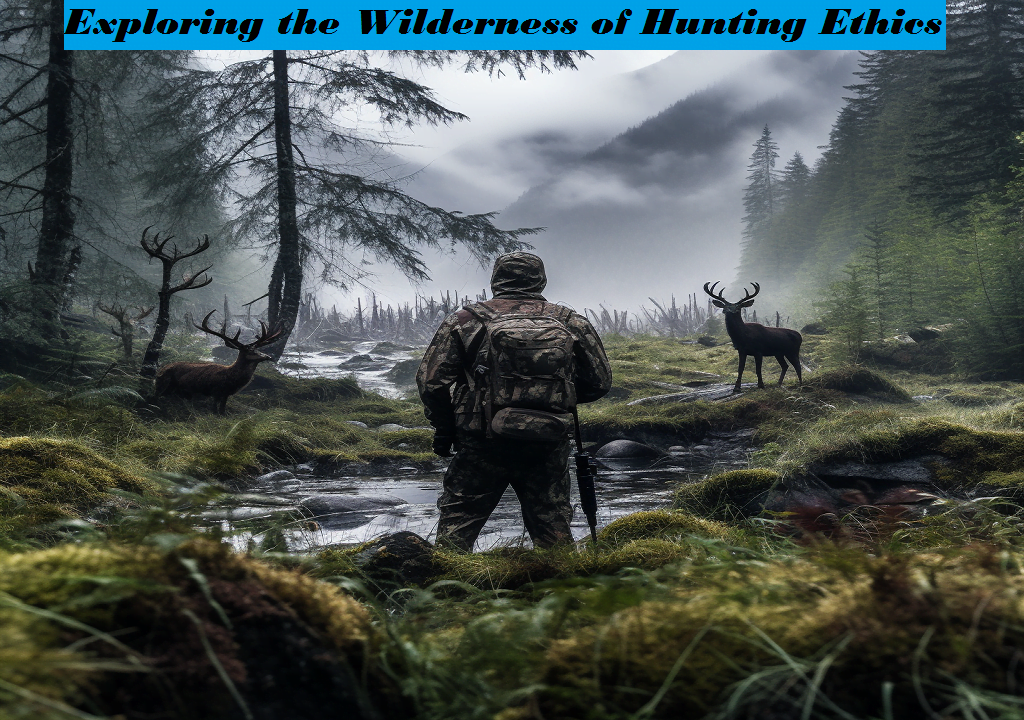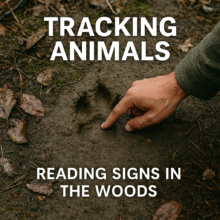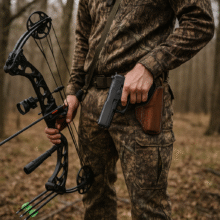Exploring the Wilderness of Hunting Ethics

Table of Contents
Table of contents
Introduction
Hunting, a practice as old as humanity itself, has evolved from a means of survival to a recreational activity. However, this transformation has raised crucial questions about the ethics surrounding hunting. In this article, we will venture into the heart of hunting ethics, delving deep into the considerations, dilemmas, and principles that guide hunters and society at large.
The Dance Between Man and Nature
Respecting the Ecosystem
Hunting is a delicate dance between humans and the natural world. Just as a conductor orchestrates a symphony, hunters must harmonize their actions with the ecosystem. This means not just taking from nature, but also giving back.
Hunting as Conservation
Surprisingly, hunting can also be an act of conservation. By managing animal populations, hunters can prevent overpopulation, which can lead to habitat destruction and disease spread. It’s a paradox: taking a life to save a habitat.
The Moral Crossroads
The Trophy Conundrum
One of the most divisive aspects of hunting ethics is trophy hunting. Is it ethical to hunt animals solely for bragging rights and decorative trophies? This question sparks heated debates that expose the clash between personal desires and the wellbeing of animal populations.
Facing Sentience
In a world where animal intelligence is increasingly evident, can we ethically justify hunting creatures that exhibit signs of consciousness and emotion? The moral scale tips as we confront the cognitive capacities of the animals we hunt.
Tools of the Hunt
The Technology Factor
Advancements in weaponry and gear have transformed hunting. But where do we draw the line? High-tech tools can tip the balance of fairness, giving humans an undue advantage. Is there a point where technology becomes unethical in the hunting realm?
Fair Chase
Imagine a chess match where one player is a grandmaster and the other a novice. Is that a fair game? Similarly, the concept of “fair chase” in hunting questions the fairness when one party has an overwhelming advantage. Stripping the hunt of its essence may lead to a hollow victory.
Cultural and Societal Dimensions
Tradition vs. Evolution
Hunting is deeply woven into the fabric of many cultures. But as times change, traditions clash with evolving ethical standards. How do we navigate the waters of cultural respect while pushing for more humane hunting practices?
Public Perception
The court of public opinion wields immense power. Is hunting losing its social acceptability? We examine how media, societal trends, and activism are reshaping the perception of hunting and its ethical implications.
The Code of the Hunter
Respect for Life
A true hunter respects the life they take. This respect is not limited to the animal but extends to the ecosystem and the balance of nature. How can this reverence for life guide hunting ethics?
Honoring the Hunted
Hunters often form deep connections with the animals they pursue. It’s not just a conquest; it’s a relationship built on admiration and a sense of shared existence. How does this emotional connection influence ethical considerations?
The Grey Areas
Culling and Population Control
Sometimes, hunting is necessary to maintain the equilibrium of a fragile ecosystem. But when does culling become an excuse for unnecessary killing? Navigating these murky waters demands a keen understanding of ecological dynamics.
Hunting for Subsistence
In some parts of the world, hunting is essential for survival. But can we universally apply the same ethical standards? The line blurs when the motive shifts from sport to sustenance.
Conclusion
Navigating the intricate landscape of hunting ethics requires not only an empathetic compass but also a profound understanding of ecology. Additionally, a flexible moral code is essential, one that can adapt to the constantly evolving relationship between humans and nature. For those of us involved in hunting, conservation, and wilderness stewardship, it’s crucial to recognize that our ethical choices not only impact the present but also shape the legacy we leave for future generations.
FAQs
Q1: Is hunting ever considered truly ethical?
A1: Ethical hunting involves respecting nature, understanding ecosystems, and valuing life. When done with these principles in mind, hunting can align with ethical standards.
Q2: What is fair chase in hunting?
A2: Fair chase refers to the pursuit of game animals in a way that gives them a reasonable chance to escape. It emphasizes skill, effort, and respect for the animal.
Q3: Are there alternatives to hunting for population control?
A3: Yes, alternatives include non-lethal methods like contraception, habitat restoration, and natural predator reintroduction. These methods aim to maintain balance without resorting to hunting.
Q4: How can I ensure I’m hunting ethically?
A4: Educate yourself about the ecosystems you interact with, choose fair and respectful hunting practices, follow legal regulations, and consider the broader impacts of your actions.
Q5: What role does empathy play in hunting ethics?
A5: Empathy forms the foundation of ethical hunting. Recognizing the sentience of animals and their role in the ecosystem helps hunters make choices that prioritize both sustainability and compassion.







